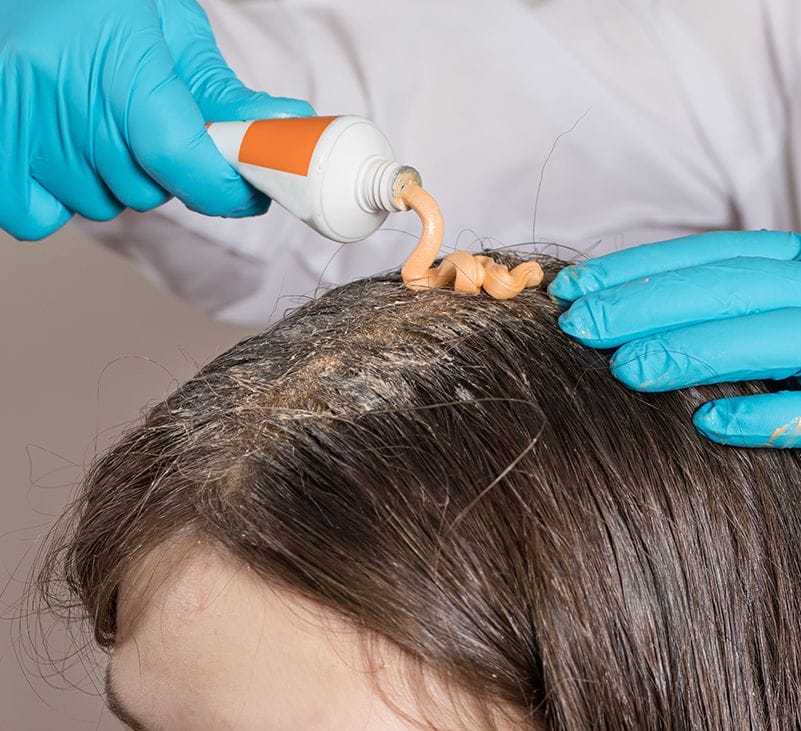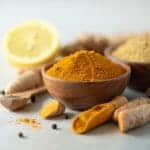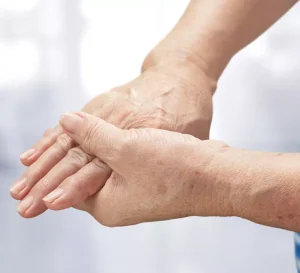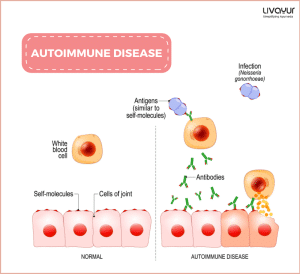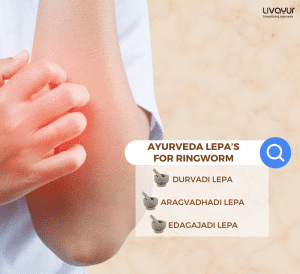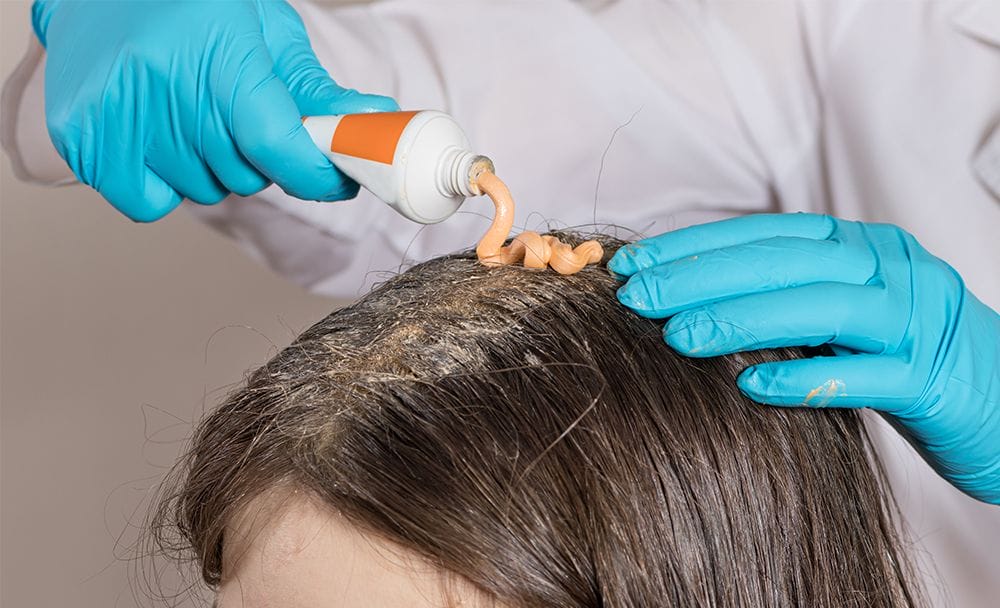
The scalp is among the most common sites where psoriasis occurs and is also a difficult one to treat due to its inaccessibility. [1] Scalp psoriasis is a chronic skin inflammatory condition that results in scaly, red patches on the scalp and greatly affects the patient’s quality of life. It is a subtype of psoriasis and can range from mild scalp psoriasis to severe, sometimes coexisting with psoriasis on other body parts. [2] This rapid cell turnover leads to the buildup of thick, silvery scales on the scalp, which can cause itchiness, discomfort, and embarrassment for those affected. [3] This article will explore the symptoms, scalp psoriasis causes, and treatment options available for Scalp psoriasis.
Symptoms of Scalp Psoriasis
The primary scalp psoriasis symptoms are the presence of elevated, reddish-white, scaly patches on the scalp with dandruff. These patches can be itchy and may extend beyond the scalp, to other parts of the body as well. It may occur as one or multiple patches and even affect the whole scalp. [4] The scales that form on the scalp can be thick, silver-white, or silvery in appearance. [3]
What causes scalp psoriasis?
The exact scalp psoriasis causes are still unknown, but it is considered as an autoimmune disorder. Autoimmune disorders arise when the immune system of your body mistakenly attacks healthy cells in the body. In the case of psoriasis, the immune system targets skin cells, causing them to multiply rapidly. Certain factors can trigger or worsen Scalp psoriasis, including:
Genetics:
Psoriasis tends to run in families, suggesting a genetic predisposition to a psoriasis dry scalp.
Stress:

Emotional stress and trauma have been linked to developing and exacerbating Scalp psoriasis symptoms.
Infections:
Certain infections, particularly the common cold, can trigger or worsen Scalp psoriasis symptoms. [4]
Treatment of Scalp Psoriasis
While there is no cure Scalp psoriasis due to the presence of hair which makes medicine application and penetration difficult, several scalp psoriasis treatment options are available to manage the symptoms effectively. The treatment choice depends on the severity and complexity of the condition and individual preferences. Here are some commonly used treatment approaches:
Topical Treatments:
These are applied directly to the scalp and include medicated shampoos, corticosteroid creams, coal tar preparations, anthralin, salicylic acid, and calcipotriol. These treatments can help reduce inflammation, control itching, and remove scales. [3]
Phototherapy:
Phototherapy is another scalp psoriasis treatment that involves exposing the affected scalp to ultraviolet (UV) light under medical supervision. UVB light is most commonly used to slow down the rapid cell turnover in the affected areas, reducing inflammation and scaling. [3]
Systemic Medications:
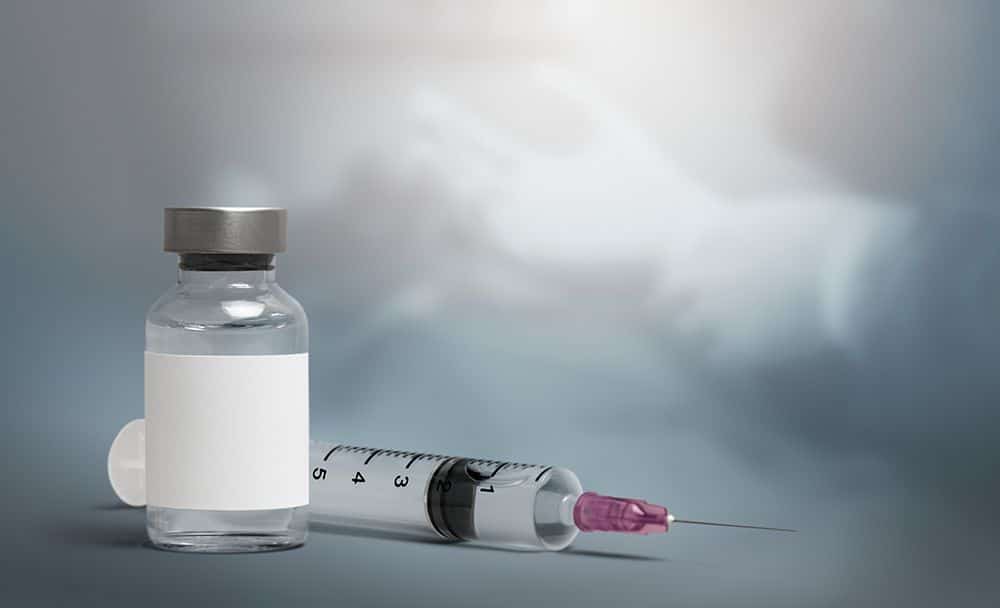
Oral or injected medications may be prescribed for severe cases of scalp psoriasis that do not respond to topical treatments or phototherapy. These medications, such as methotrexate, cyclosporine, and acitretin, work by suppressing the immune responses to reduce inflammation and slow down skin cell growth. [3]
Ayurvedic intervention:
A combination of Ayurvedic drugs and applications can help with scalp psoriasis treatment.
Shhtmurti Rasayana possesses properties that are Jantughna (antimicrobial) and Rakta Shodhak (blood purifying). It works by balancing the doshas of Vata and Pitta. It also helps balance the dhatus; Rakta, Mamsa, and Meda Dhatus (bodily tissues).
Gandhak Rasayan, a traditional medication, acts as a blood purifier and possesses antioxidant and mild digestive stimulant properties. It also has anti-inflammatory effects and acts as a broad-spectrum antibiotic.
Rasa Manikya is effective for treating skin disorders and diseases caused by imbalances in Vata and Kapha doshas.
Panch Nimba Churna aids in detoxification, increases hemoglobin levels, balances Kapha, improves blood circulation, and possesses anti-inflammatory properties.
Trivang Bhasma has androgenic and aphrodisiac actions. It helps in balancing Vata and Pitta.
Godanti Bhasma balances Pitta dosha and provides a cooling effect on the body. It also possesses anti-inflammatory properties.
Haridra Khanda is known for its anti-allergic effects and is used in itching skin disorders, fungal skin disorders, and Sheeta Pitta. You can get the purest form of Haridra from Zanducare.com. The Zandu Haridra capsules are anti-allergic in nature and can treat all issues of the skin and scalp.
Panchatikta Ghrita acts as an anti-inflammatory, provides relief from itching and skin irritation, balances Pitta, and possesses detoxifying properties.
Triphala powder serves as an anti-inflammatory agent and antioxidant. You may also consider taking Triphala capsules to empower your immune system against issues like scalp psoriasis. Buy Zandu Triphala capsules to reap the best benefits of Triphala. Visit Zanducare.com to place your order today!
Kutaki powder has bhedana (purging) properties and acts as an antioxidant.
Kanak ksheeri oil impairs keratinocytes, disrupts co-stimulatory molecule communications, and helps prevent psoriasis dry scalp that lead to the formation of silvery scaly lesions. [4]
FAQs
Can changes in lifestyle help deal with Scalp psoriasis?
Making certain lifestyle changes can help manage Scalp psoriasis symptoms. These include maintaining good scalp hygiene, avoiding triggers such as stress and certain medications, protecting the scalp from extreme temperatures and sunlight, and moisturizing the scalp regularly. Some people find relief from scalp psoriasis symptoms through alternative therapies such as acupuncture, meditation, and herbal remedies. While these methods may not have scientific evidence supporting their efficacy, they can provide symptomatic relief for some individuals.
How to cure scalp psoriasis permanently?
While there is no known permanent cure for scalp psoriasis, various treatment options, such as phototherapy can effectively manage symptoms and provide long-term relief. Intralesional steroid injections are also considered a good scalp psoriasis treatment as they reduce inflammation.
What is the best scalp psoriasis home treatment?
Scalp psoriasis home treatment can include regular use of medicated shampoos containing coal tar, using aloe vera, black nightshade, garlic, guggul, neem, or jasmine flower paste can help alleviate symptoms. Scalp psoriasis can lead to tremendous hair fall. Along with treating scalp psoriasis, you must increase hair growth and regrowth to recover from the hair loss. Try using the Zandu Hair Growth Vitalizer for an improved hair growth. This vitalizer, powered by potent ayurvedic herbs like Amalaki, Ashwagandha, Manjistha, Bhringaraja, etc., can nourish your scalp and hair roots and activate the hair follicles, fostering regrowth. Visit Zanducare.com to place an order!
Conclusion:
Scalp psoriasis is a chronic autoimmune skin issue marked by red, scaly and inflamed patches on the scalp. It can cause discomfort, itchiness, and embarrassment. While there is no cure for scalp psoriasis, various treatment options are available to manage the symptoms effectively. With proper management and lifestyle modifications, individuals with scalp psoriasis can lead a fulfilling life with minimized symptoms and improved quality of life.
Disclaimer:
This article is written from a health and wellness perspective only and is not a piece of medical advice. Kindly seek the help of a certified medical practitioner before initiating any treatment.
References:
- Scalp Psoriasis: A Brief Overview
- Scalp psoriasis: A review of current topical treatment options
- Management of scalp psoriasis: current perspectives
- Management of Scalp Psoriasis Through Ayurveda: A Case Report




